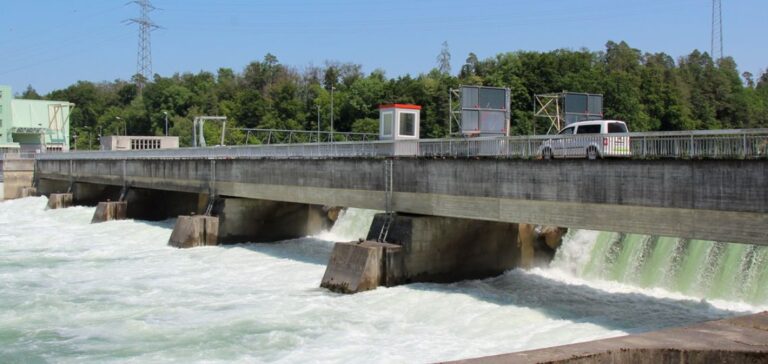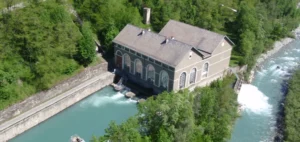Axpo Holding AG announced the start in early May of extensive construction work around the Beznau hydropower plant (HKB) in Switzerland, following the renewal of its operating licence by the Aargau Cantonal Council. This permit, retroactively effective from August 29, 2022, ensures the site’s operation until 2052. The company plans to complete the work by the end of the year.
A structured programme of ecological developments
Six ecological replacement and compensation measures are planned on the left and right banks of the residual water section as well as in the reservoir area. On the left bank, Axpo will install eight groynes made of stone blocks and dead wood to promote sedimentation, current diversity, and the creation of refuges for aquatic wildlife. On the right bank, a gravel bank will be restored over an area of up to 10,000 m² to re-establish spawning grounds for species such as nase and grayling.
The project also includes the creation of a shallow lake at Grossmatt/Au by removing an existing bank dam. This initiative aims to provide new breeding areas for young fish and offer refuges during floods. The site will also feature a developing swamp forest and structures intended to support plant-spawning fish species.
Development of a wildlife corridor and new habitats
Axpo will establish a wildlife sanctuary near Grossmatt/Au, integrating native plants and microstructures to support biodiversity. This refuge will strengthen the wildlife corridor linking the Jura to eastern Switzerland, classified as nationally important. Nutrient-poor meadows, wetland biotopes, and various shelters will promote the presence of rare small mammals, reptiles, and insects.
At Kumetmatt/Stalde, a 400-metre-long side watercourse will be created, enriched with gravel islands, bays, and structures to encourage the emergence of a natural floodplain forest. Several periodically drying ponds will also be established to support amphibians typical of floodplain areas while limiting the presence of predators.
According to Axpo, these developments will improve the ecological conditions along the Aare while strengthening the interconnection between aquatic and terrestrial biotopes.






















